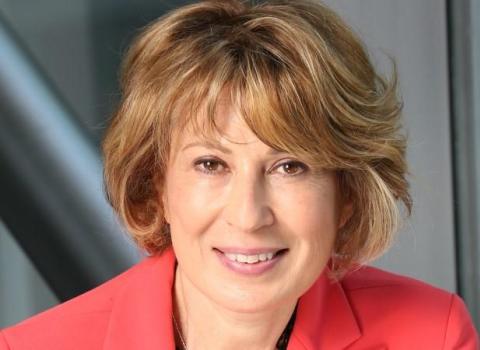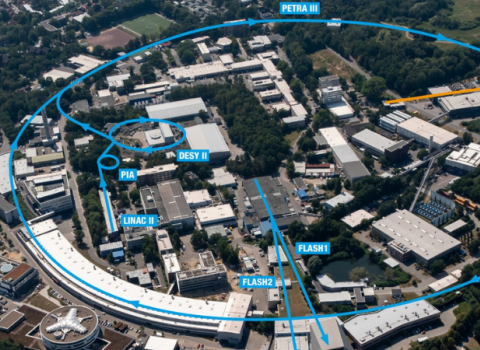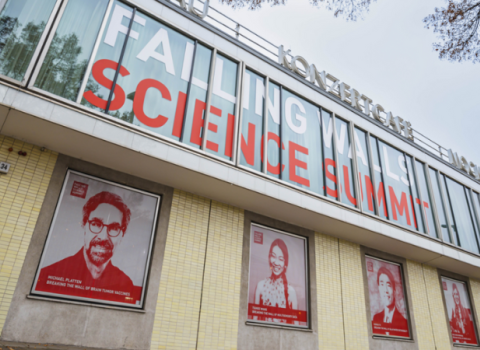In Boston, postdocs in the US are fearful, and plotting ways to return to Germany. But German academic careers can still appear unattractive

Photo credits: Jimmy Woo / Unsplash
Science|Business - Table.Media partnershipScience|Business has partnered with Table.Media, a leading source of news about higher education and research in Germany. Each week, we are publishing one of each other’s stories to give readers an even broader range of insight into R&D policy across Europe. |
At the end of August, leading figures in German science and research policy descended on Boston for Gain25, a talent fair held to promote the country as a location for research.
The Gain conference, which has a tradition dating back more than 20 years, has long been ridiculed. It was considered a valiant attempt to persuade at least some German researchers working in the US to return to their home country and cushion the brain drain out of Germany.
But this year, the context in the US is different. In response to the US government's ongoing attacks on science and universities since January, around 80 German organisations, universities and associations presented themselves to around 330 US-based postdocs and scientists in the early stages of their careers.
And in addition to trying to get German researchers to return home, the question of attracting non-German talent from the US was explicitly addressed for the first time. Indeed, this year, the conference had a largely English-language programme.
Recent analyses have shown that US universities are losing their appeal for internationally mobile talent, while Germany is considered a potential beneficiary. However, there are no reliable figures yet on a decline in international applicants to US universities.
Rolf-Dieter Jungk, a leading civil servant in Germany’s Ministry for Research, Technology and Space, presented the country’s Global Minds Initiative, which launched in July, to the postdocs in Boston.
In addition to strengthening existing programmes run by intermediary organisations and the German Research Foundation (DFG) to attract international talent, he announced support for universities in setting up graduate welcome centres and digitising visa procedures. However, these programmes are still subject to budget decisions for 2025 and 2026.
Fear of job loses
In conversations with postdocs at Gain, it became clear how much the mood at universities in the US has suffered under the second administration of US president Donald Trump.
Scientists from Harvard University and the Massachusetts Institute of Technology, who wanted to remain anonymous, reported to Table.Briefings that they fear for their residence permits and jobs.
Universities in the US are suffering a noticeable loss of importance in the face of shifting political priorities and competition from large tech companies. “Many colleagues are trying to complete their projects while they still can. They are looking for jobs in industry or abroad,” said a German physics postdoc currently at Harvard. This could have serious consequences for the freedom and direction of research and science.
Other participants reported that they had been encouraged by career services or supervisors at US institutions to look for job opportunities in Germany. Departments are currently trying to reduce their workforce and, due to the uncertain funding situation, are forced to offer only short-term contracts, explained Alexandria Yen, programme director of postdoctoral career and professional development at MIT. It was a bizarre situation, she said, to be talking to MIT talent at a conference about career prospects in Germany.
German weaknesses
However, during discussions in Boston, the weaknesses of the German system still frequently come up. These issues include strong hierarchies and the tendency to form cliques, the lack of alternatives to habilitation – a kind of second PhD often necessary to become a full professor in Germany – and problems with visas.
Related articles
- Trump budget cuts hit CERN and other global science partnerships
- Don’t feel guilty about poaching scientists fleeing Trump, US science body tells Europe
US institutions and researchers show “great openness to exchange and cooperation,” said DFG president Katja Becker at the conference. Both at Gain25, and at a DFG round table held in Washington, DC, a few days earlier, scientists and institutions had signalled a high level of interest in Germany, she said. This included the desire of postdocs to return to the German scientific system, but also the goal of American researchers to cooperate with future clusters of excellence in Germany.
“Fear in the system”
“Developments in the US show how consistently the measures announced in Project 2025 are being implemented, including in higher education and science,” said Joybrato Mukherjee, president of the German Academic Exchange Service, referring to a document widely seen as a blueprint for Trump’s second term.
But, he said, what is happening in the US has an impact on Germany and Europe, and offers the opportunity to anticipate similar developments here. Scepticism toward science and conspiracy myths are not purely US phenomena, he stressed.
In an interview with Table.Briefings, Falko Mohrs, science minister for the state of Lower Saxony, expressed concern about developments in the US. “In Germany, we sometimes underestimate how dramatic the situation is, especially for young talent,” said Mohrs. From the conversations he had with scientists on the ground in Boston, he thinks that there is now a great deal of “fear in the system.” The idea that research funds could only be allocated according to ideological criteria in the future is something more familiar from totalitarian systems, he said.






 A unique international forum for public research organisations and companies to connect their external engagement with strategic interests around their R&D system.
A unique international forum for public research organisations and companies to connect their external engagement with strategic interests around their R&D system.